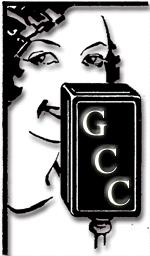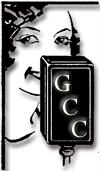
We've been talking a lot about the music industry in our house lately (my husband's band Bucksworth has received some interest from a major label—I'll keep you posted…) so it was fun to discover that our current GCC visitor,
Jennifer O'Connell, has a new novel, OFF THE RECORD, set in the music world. Here is the premise:
There's no way a rock star would ever write a song about Jane Marlow, the straight-as-an-arrow narrator of OFF THE RECORD. She isn't the type to wear red garter belts or rhinestone butterfly thongs under her conservative navy blue suits. She's a true-blue good girl: a plain, predictable, and perfectly responsible estates attorney.
But then Jane's brother catches an episode of Music One's "Off the Record," and makes a startling discovery that threatens to take Jane out of the law library and into the spotlight. Former pop sensation Teddy Rock isn’t just a has-been rock star attempting to make a comeback, he’s actually their childhood neighbor Theodore Brockford...and his one-hit wonder twelve years earlier wasn't just a catchy tune that took the charts by storm - it was a song about Jane Marlow.
Of course, complications and hilarity ensue. I asked Jennifer a few questions about her process…
--What inspired OFF THE RECORD?
Remember “Jenny 867-5309” from way back? Well, I was a kid when the song came out, and at that point in my life everyone called me Jenny. All I remember was everyone wondering who Jenny was, calling the number to ask for Jenny, and hearing stories that the people with that phone number had to have their phone disconnected because it wouldn’t stop ringing (that’s probably an urban myth). In any case, the idea always stuck with me, and every time I hear a song I wonder what inspired the writer and whether the content of the lyrics are real or mere imagination. I also thought it would be cool to be so inspirational that someone would write a song about me. I wanted to write a book about a woman who is an unlikely candidate for musical muse, and yet finds out she did inspire a song – and the world finds out as well. And I wanted that discovery to be just about the least desirable thing that could happen to her (she’s way more evolved than I am).
--Did you listen to any particular music as you wrote the book? What is your writing process like, and does it change from book to book?
I write in a top secret location (a local coffee shop), so there’s usually random Muzak playing, which really doesn’t do much to inspire me. I’m not a super structured writer, but get more structured as I go along to keep my head straight. I just finished my first teen book, which will be out in March, and it was the least structured yet. And ended up being so much fun because all of a sudden my character was doing these unexpected things that cracked me up. I always start with a sheet that looks like a calendar, it has a bunch of squares and each one is a chapter. I fill them in with the main four or five things that happen, that way I know where the story’s going and don’t get confused. Other than that, I don’t do a thorough outline. I’m more of an on-the-fly writer.
--Tell me about the "Fictionista Chick Lit Tour"
The “Fictionista Chick Lit Tour” is the brain child of author Josie Brown. She thought that bringing authors into fun, hip places for after-work happy hour events would be ideal for fans of the genre. We have a wine sponsor introducing a new wine from Italy, and there will be special cocktails created just for the tour. There are four authors at every event, we’ll read from our latest books, answer questions, and just generally talk to readers. Books will also be available. I think of it as a kind of ‘literary Lilith Fair.” Here are the upcoming cities I’ll be touring:
Washington, DC Monday 10/10 - 7pm @ Hard Rock Cafe, 999 E. Street
New York, NY Friday 10/14 - 5pm @ Sugarcane, 245 Park Ave S.
Chicago, IL Monday 10/24 - 5pm @ Liquid Lounge, 171 W. Randolph St.
Memphis, TN Tuesday 10/25 - 6pm @ Hard Rock Cafe*
Atlanta, GA Thursday, 10/27 - 6pm @ Aiko, 128 East Andrews Dr.
--Finally, to continue my fruit-question tradition--what do you think is the most rockin' fruit, and why?
Is it obscene that my first thought was a banana? Maybe because I’m thinking of all those rock ‘n roll front men and their preoccupation with their own fruit. On another note, bananas are very nutritious (I always tell my kids that bananas are the “perfect food,” I think I’m being brainwashed by Chiquita’s advertising campaign), they travel well, and yellow is a happy color.
--Thanks so much, Jennifer! Have fun on the tour (take lots of bananas with you)!










